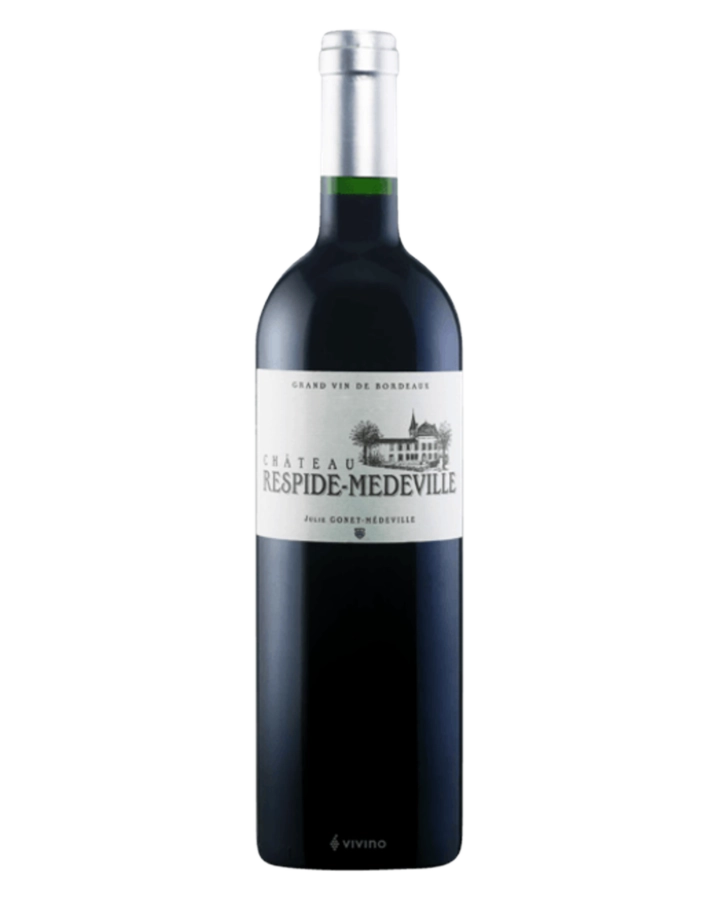Château Respide-Médeville 2021 Graves Rouge
Château Respide-Médeville 2021 Graves Rouge
750ml bottle
13% abv
Fresh fruited and mineral, with well-integrated tannins.
60% Cabernet Sauvignon, 40% Merlot
FARMING Sustainable - Lutte Raisonnée
SOIL Sand, gravel
VINEYARDS & VITICULTURE Château Respide-Médeville is situated on the summit of the first gravel hill north of Langon, with a view over the Garonne valley. The three-hectare vineyard is spread out around the château on a mosaic of terroirs in the heart of Graves. The Merlot is planted on gravel mixed with sand on a bed of clay.
HARVEST & VINIFICATION Grapes are manually harvested and macerated, 20% whole-bunch, in stainless steel vats for 21 days with regular pump over. Malolactic fermentation takes place separately: 50% of the fermented blend is aged in new oak for 12 months, while 50% continues to age in stainless steel.
One of the estates in the remarkable portfolio of Julie and Xavier Médeville, Château Respide-Médeville is a property in the heart of Graves.
Originally acquired by Julie's father, Christian Médeville in 1984, this estate showcases its sandy, gravelly, namesake soil.
At Respide-Médeville, Julie and Xavier have scored another home run with a property that perfectly encapsulates its terroir.
The proliferation of synthetic fertilizers, pesticides, herbicides, and fungicides in the 1950s has made France the single largest consumer of phyto-chemicals in Europe today. The subsequent degradation of the soil has ensued, killing off the necessary microbiotic life forms that support healthy soils. Lutte raisonnée, literally “reasoned fight” (in French), or “supervised control” (in English), is a reaction to the use of such chemicals, regarded as a pragmatic approach to farming, where chemical treatments are used only when absolutely necessary. Biodiversity in the vineyards is encouraged through the planting of cover crops, rigorous plowing of the soils, and the use of manures and natural composts to fertilize the vines. Some growers use this as a first step towards full organic farming. Others find it a happy medium between conventional methods and the stricter demands dictated by organic certifying agencies. There is a wide berth of interpretation concerning these methods. Some farmers work through certifying agencies such as Terra Vitis, following a specific set of specifications and requirements. Others farm independently, following organic methodologies, and reserving treatments only when conditions are optimal (for example, when there is no wind). Zoologists have introduced more environmentally-friendly concepts such as integrated pest management, or hormone confusion, which prevents the reproduction of certain pests that may threaten the vines. The reduction of sprays not only contributes to the health of the vines and the greater ecosystem, but also to the health of the winegrowers (who account for the largest percentage of cancer cases among farmers). —KLWM
Share

